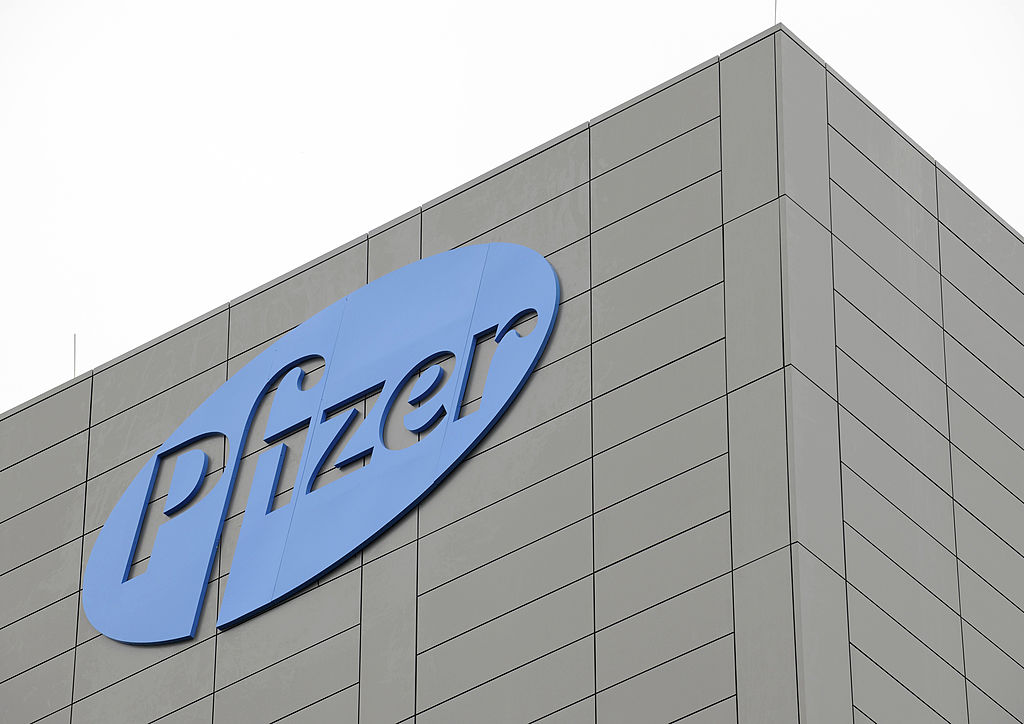
Pfizer’s inflammation and immunology portfolio is anchored by Xeljanz, a blockbuster product now weighed down by stronger safety warnings on its drug label. In acquiring Arena Pharmaceuticals for $6.7 billion, Pfizer gains a late-stage compound for inflammatory bowel disorders and more, but the pharmaceutical giant said the deal isn’t a move to replace lost revenue for its franchise immunology product. Instead, Pfizer said the incoming asset complements Xeljanz.
The inflammatory bowel disorders ulcerative colitis (UC) and Crohn’s disease are heterogeneous, meaning that there’s wide variation in the way these conditions present themselves and progress in patients. According to Mike Gladstone, Pfizer’s immunology and inflammation global president, no single drug will be adequate to treat patients. The Arena drug, etrasimod, will be prescribed before the JAK inhibitor Xeljanz, as patients go through multiple treatment options. That also applies for potential use of the drug in treating dermatology conditions, such as atopic dermatitis (AD), which is currently addressed by another Pfizer JAK-blocking drug, Cibinqo.
“We don’t believe this is a replacement in any way shape and form,” Gladstone said, speaking during a Monday conference call. “Arena represents a strategic fit for us, and it complements our existing areas of focus. We would anticipate a drug like etrasimod being used before JAKs. That leaves plenty of room for Cibinqo to be successful. We think it again, fits nicely with our patient population, for both UC and AD, this really helps us serve the need for patients throughout their entire journey.”
Pfizer agreed to pay $100 cash for each Arena share, more than twice the stock’s closing price on Friday. The deal values Arena, which is headquartered in Park City, Utah, but has most of its operations in San Diego, at $6.7 billion.
Etrasimod is small molecule discovered by Arena and developed to selectively target sphingosine 1 phosphate (S1P) receptors. These receptors are found throughout the body, playing a role in a range of biological functions. Enzo Biochem and RedHill Biopharma are among the developers of S1P-targeting drugs, both companies focusing on that pathway as a way to treat cancer.

NEMT Partner Guide: Why Payers and Providers Should Choose MediDrive’s TMS
Alan Murray on improving access for medical transportation.
Arena’s interest is in the role that S1P plays in the trafficking of lymphocytes from the lymph nodes to the blood. The drug is designed to selectively target three types of S1P receptors. According to a Pfizer investor presentation, this approach reduces the trafficking of T and B lymphocytes from the lymphoid organs and into the blood. Consequently, there are fewer immune cells circulating in the blood that can spark tissue damage.
“Lymphocytes are the generals of the immune system, and they drive activity, like recruiting eosinophils, for example,” Mike Vincent, Pfizer’s inflammation and immunology chief scientific officer said. “The mechanism of etrasimod is more about controlling the lymphocytes that are directing inflammation as opposed to locking it down.”
The Arena drug has the potential to be the best in class for a variety of immune-inflammatory disorders, including UC, Vincent said. A better safety profile is another distinguishing feature. He added Pfizer does not anticipate the drug will require a boxed warning on its label.
Currently, Pfizer’s main way of addressing inflammatory disorders is with drugs that block Janus kinase enzymes, more commonly referred to as JAKs. These enzymes play a role in cell signaling in inflammatory diseases and cancer. Xeljanz is approved for treating rheumatoid arthritis, psoriatic arthritis, and ulcerative colitis.
The class of JAK-blocking drugs comes with a risk of higher cardiovascular problems and cancer, which were previously flagged as boxed warnings on the labels of these medications, including products from AbbVie and Eli Lilly. Earlier this year, the FDA concluded a review of a post-marketing Xeljanz study that found patients treated with the Pfizer JAK drug had a higher risk of death, cardio problems, cancer, and blood clots compared to patients treated with tumor necrosis factor blockers, an old arthritis medication. Based on those results, the agency required stronger warnings on the drug labels of all JAK inhibitors.
Xeljanz generated more than $2.4 billion in revenue last year. The new warning appears to be dampening that drug’s sales. In report of third quarter financial results, Pfizer said that U.S. sales of the drug were down 13% compared to the same period in 2020, a decline the company attributed to the FDA’s drug safety communication for the JAK drug class.
Arena has advanced etrasimod to two Phase 3 studies in UC , and a Phase 2/3 study in Crohn’s disease. The two UC studies are expected to report data in 2022. The company is also planning a Phase 3 study in atopic dermatitis. Mid-stage tests of the drug are ongoing in eosinophilic esophagitis and alopecia areata.
The Arena pipeline also includes two clinical-stage cardiovascular drugs. The first, temanogrel, is in Phase 2 testing for microvascular obstruction and Raynaud’s phenomenon secondary to systemic sclerosis. ADP418 is in Phase 2 testing for acute heart failure.
The boards of directors of both companies have unanimously approved the transaction. If Arena terminates the deal, it will owe Pfizer a $350 million termination fee, according to a regulatory filing.
Photo: Munshi Ahmed/Bloomberg, via Getty Images








